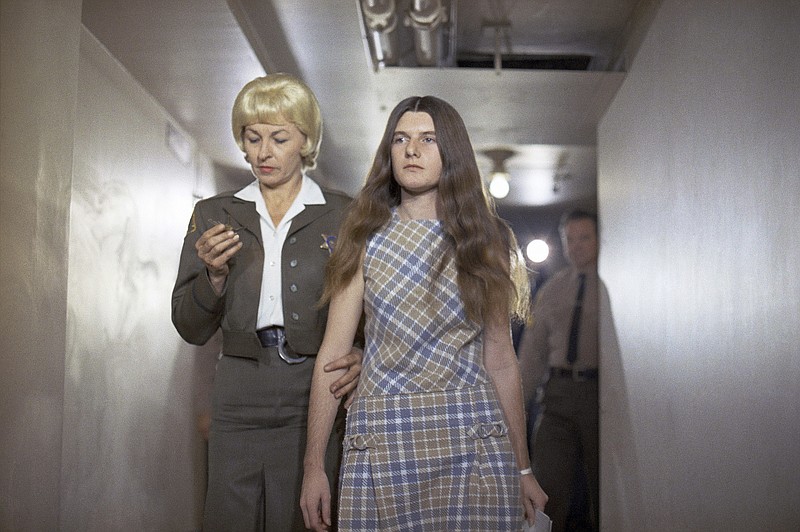SACRAMENTO, Calif. (AP) - A board Thursday denied parole for convicted killer Patricia Krenwinkel - a follower of cult leader Charles Manson - after officials investigated whether battered women's syndrome affected her state of mind at the time of the notorious murders nearly five decades ago in California.
Krenwinkel, 69, was previously denied parole 13 times for the slayings of pregnant actress Sharon Tate and four other people.
The next night, she helped kill grocer Leno LaBianca and his wife Rosemary in what prosecutors said was an attempt by Manson to ignite a race war.
The decision on parole came six months after commissioners postponed the latest hearing so officials could investigate whether Krenwinkel was battered by Manson.
"They were willing to discount the level of control through the violence, threats, intimidation that was substantiated by their own investigators," Krenwinkel's attorney, Keith Wattley, said after the hearing. The board "claimed to somehow not understand how she could follow the orders she was given."
State law requires commissioners to give "great weight" to whether physical, emotional or mental abuse affected offenders to the point "it appears the criminal behavior was a result of that victimization."
Krenwinkel was denied parole for five more years at the hearing at the California Institution for Women east of Los Angeles, where she is incarcerated.
Krenwinkel was a 19-year-old secretary living with her older sister when she met the 33-year-old Manson at a party. She testified she left everything behind three days later to follow him because she believed they had a budding romantic relationship.
She said in December that her feelings faded when Manson became physically and emotionally abusive and trafficked her to other men for sex.
She said she left him twice only to be brought back, and she was usually under the influence of drugs and rarely left alone.
"I thought I loved him. I thought - it started with love, and then turned to fear," she said.
Tate's sister, Debra Tate, attended the hearing and said commissioners rejected the intimate partner battering argument in part because Krenwinkel had multiple sex partners at the time.
"She has no insight into the crime and is still minimizing her offense," Tate added.
The commissioners did not immediately release the reason for their decision.
William Portanova, a defense attorney and former prosecutor who is not affiliated with the case, said commissioners would seem justified in denying Krenwinkel's parole even if they found that she was a victim of domestic violence.
"It was such a calculated act of insanity perpetrated by people that were so weak that they followed a madman into murder, and I think the parole board is justified in worrying that such weak-mindedness may be permanent and therefore the danger of reoffending, if released, is too high to take the chance," he said.
Wattley said Krenwinkel should also be freed because of her age now and because she was just 21 and less culpable during the murders. He said he will consider asking a judge to overturn the parole panel's decision.
"The politics and the public outcry outweighed the law," Wattley said. "She sufficiently changed her life, transformed herself, and she's not a danger anymore."

